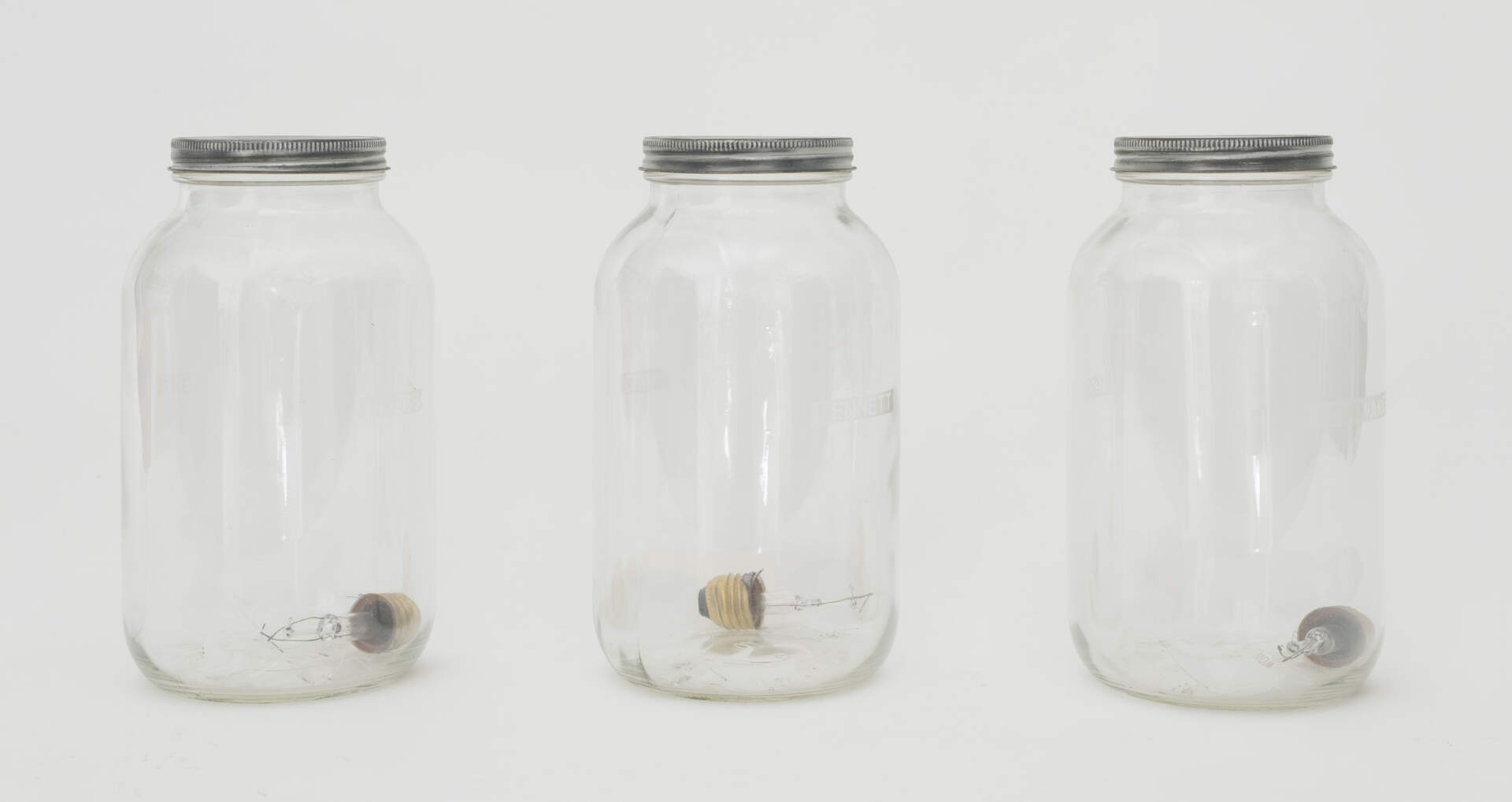
Commemorating World AIDS Day
Saturday, Dec 1, 2012
Commemorating World AIDS Day
December 1, 2012
These works, acquired for the Burchfield Penney Art Center Archives in connection with A Day Without Art: The AIDS Bottle Project exhibitions 1991-1993 are by anonymous artists.
3 glass jars with metal screw-top lids, 8 ½ inches high x 4 ¾-inch diameter, each containing a broken light bulb and etched with the surname of the artist and date he was lost to AIDS:
BENNETT / 1987
KOLOVAKOS / 1990
KREBS / 1985
1. Michael Bennett (April 8, 1943-July 2, 1987) Director, choreographer and dancer
Michael Bennett (born Michael Bennett DiFiglia in Buffalo, NY) was a director, choreographer, and dancer. Bennett studied dance and choreography in his teens, and staged several shows at his local high school. After playing the role of Baby John in “West Side Story” on U.S. and European tours, he began his Broadway career as a dancer in early ‘60s musicals such as “Subways Are for Sleeping,” “Here's Love,” and “Bajour.” He made his debut as a choreographer in the 12-performance flop, “A Joyful Noise” (1966), which was followed a year later by another failure, “Henry, Sweet Henry.” His first hit came in 1968 with “Promises, Promises,” when he created several original and lively dance sequences from Burt Bacharach and Hal David’s highly contemporary score. During the next few years he choreographed the Katherine Hepburn vehicle “Coco” (1969), two Stephen Sondheim shows, “Company” (1970) and “Follies” (1971), along with “Seesaw” (1973), on which he was also the director and librettist.
Then came “A Chorus Line,” which opened in July 1975 and closed nearly 15 years later in April 1990. In 1995 it was still the longest-running Broadway production, musical or otherwise. As its choreographer and director, Bennett devoted several years of his life to the show, auditioning, rehearsing, and directing productions throughout the world. He declined to spend any more time making a film version, and Richard Attenborough’s “uninspired” adaptation was released in 1985. Bennett's next musical was the short-lived “Ballroom” (1978), but he had one more major hit with “Dreamgirls” in 1981, which earned him his seventh and final Tony Award. In the early ‘80s he toyed with various projects including another musical, “Scandal,” but nothing materialized. In 1985 he signed as the director of “Chess,” but had to withdraw in January 1986 through illness. Later in the year he sold his New York property and moved to Tucson, Arizona, where he stayed until his death from AIDS in 1987.
2. Gregory Kolovakos (c. 1952-1990)
Gregory Kolovakos (c. 1952-died 1990) Translator, Director of the Literature Program at the New York State Council on the Arts, Chair of the PEN Fund for Writers and Editors (The PEN American Center (PEN) was founded in 1922 in New York City to advance literature, to defend free expression, and to foster international literary fellowship. “The Gregory Kolovakos Award is a literary award given every three years by PEN American Center (the U.S. chapter of International PEN) to a U.S. literary translator, editor or critic ‘whose work, in meeting the challenge of cultural difference, extends Gregory Kolovakos’s commitment to the richness of Hispanic literature and to expanding its English-language audience’.”
3. Krebs (died 1985)